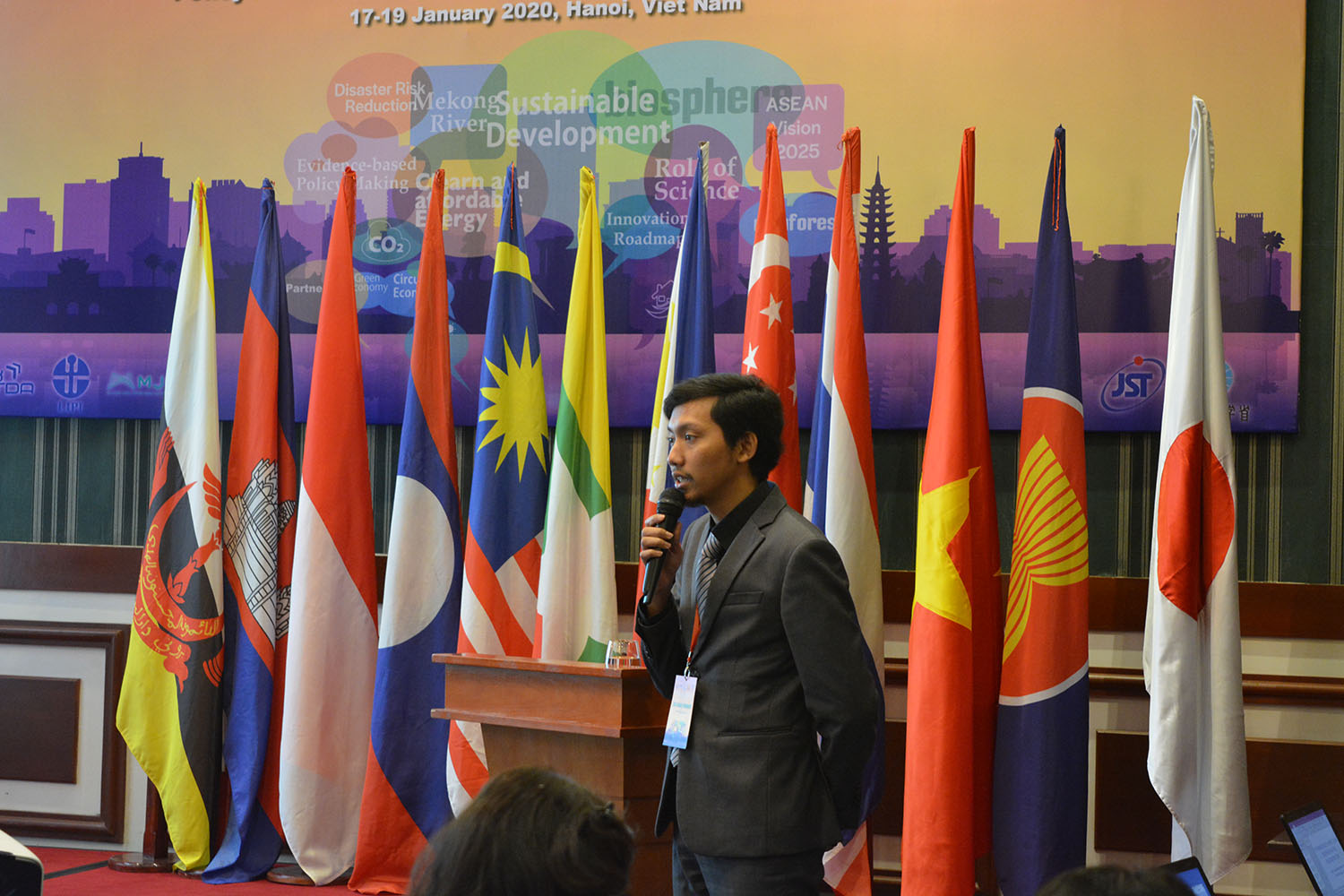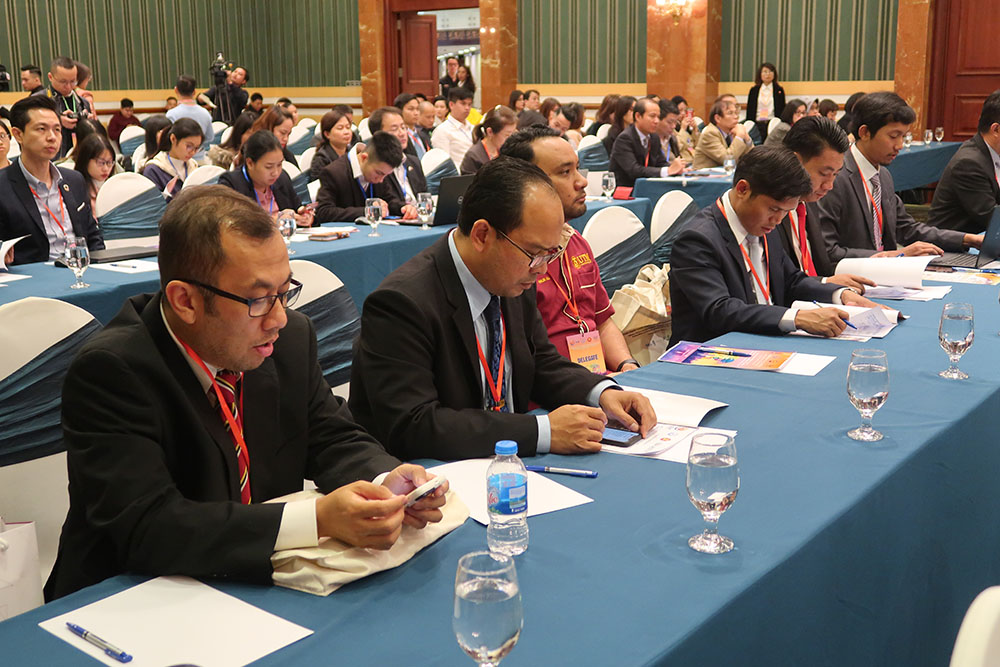Hanoi, 17-19 January 2020
JASTIP (Japan-ASEAN Science, Technology and Innovation Platform) is a joint platform between ASEAN and Japan aiming to promote collaborative research activities leading to sustainable development. Funded by Japan Science and Technology Agency (JST), JASTIP has four Working Programmes, composed of a headquarter for Partnership and Networking, and three joint laboratories: Energy and Environment (NSTDA, Thailand), Bioresources and Biodiversity (LIPI, Indonesia), and Disaster Prevention (MJIIT, Malaysia).
On 17-19 January 2020, JASTIP held ASEAN-JAPAN STI Symposium 2020 in Hanoi, Vietnam. ASEAN Centre for Energy (ACE) was invited to share its perspective, represented by Senior Research Analyst of ACCEPT, Dr. Zulfikar Yurnaidi. Carrying the theme of “Where Science and Policy Intertwine: Dialogue between Scientists and Policy-Makers for Sustainable Development in the ASEAN Region”, the event also invited the Deputy Minister of MOST, Vietnam, Vice President of Kyoto University, Japan Ambassador to ASEAN, Assistant Director of STI Division at ASEAN Secretariat, Senior Officers of COSTI, and Director of JST Singapore, among other distinguished guests.
 Senior Research Analyst of ACCEPT presenting ASEAN progress towards SDG 7 and roles of ACE
Senior Research Analyst of ACCEPT presenting ASEAN progress towards SDG 7 and roles of ACE
This event is an important milestone for Vietnam, who will take a role as ASEAN Chair in 2020 and is the coordinator of ASEAN-Japan dialogue relations in 2018-2020. Deputy Minister of MOST Bui The Duy said that the development of science, technology and innovation is one of the ASEAN top priorities, especially to achieve the development goals set in the ASEAN Plan of Action on Science, Technology and Innovation (APASTI) 2016-2025, as well as the UN’s 2030 Agenda for Sustainable Development.
The first two days of the workshop were divided into four sessions: Disaster Risk Reduction, SDG 7, SDG 12, and SDG 15. Presenters from the ‘science side’ share STI activities and results in its institution, while presenters from the ‘policy side’ discuss related policy frameworks. Lively discussions followed each presentation, with perceived needs of more field-driven STI, more intersectoral collaboration, more practical training programs, and more dissemination became the key insights.
 Researchers and policy makers across ASEAN gather and discuss intersectoral issues including energy-climate
Researchers and policy makers across ASEAN gather and discuss intersectoral issues including energy-climate
On the last day, JASTIP Steering Committee held a meeting to review the platform’s performance in the 2015-2019 period and discuss the activities in the 2020-2025 period.
As it aims to improve the coherence between energy and climate policies, as well as contribute to more climate-friendly energy development in ASEAN, ACCEPT works on the implications of sustainable development goals to energy policies. Related to SDG 7, ACCEPT shares that ASEAN progress is relatively good, albeit with differing rates between its components—green for energy efficiency, yellow for modern energy access, and red for renewable energy (UNESCAP, Asia Pacific SDG Report, 2019).
Challenges in renewable energy penetration should be addressed properly, and it would require strong commitment and collaborative efforts between sectors, e.g. energy, climate change, STI, and between science, policy, and industry. Through its activities, ACCEPT would bridge such “silo” through the exploration of potential collaboration and intersectoral synergy.
(ZY)